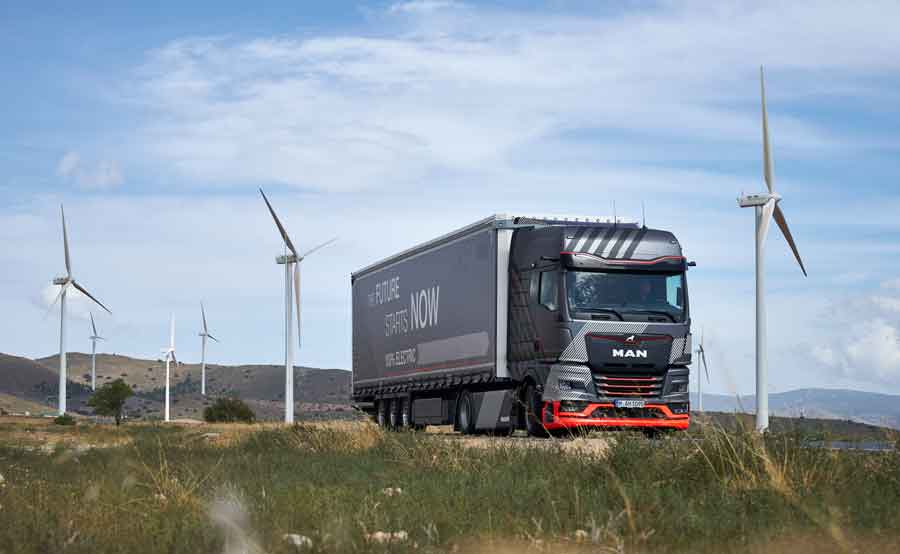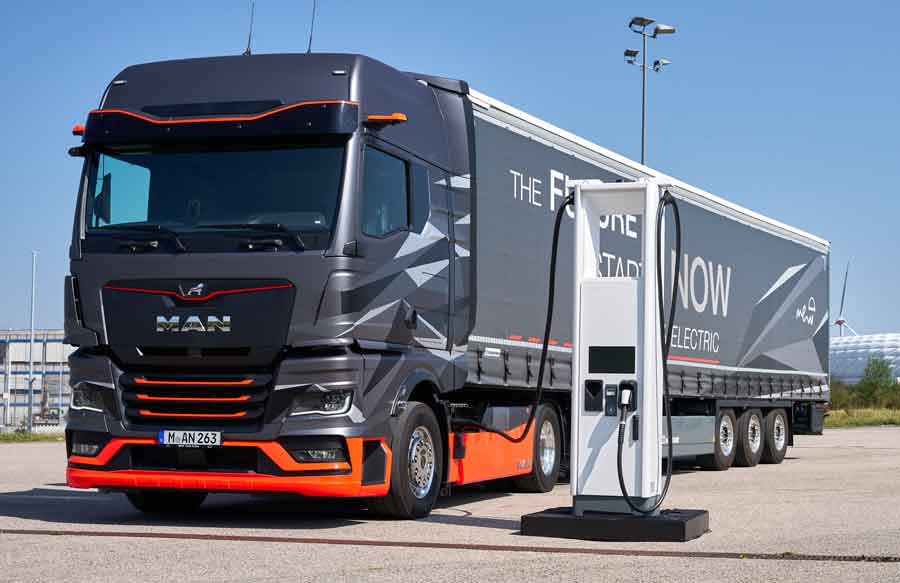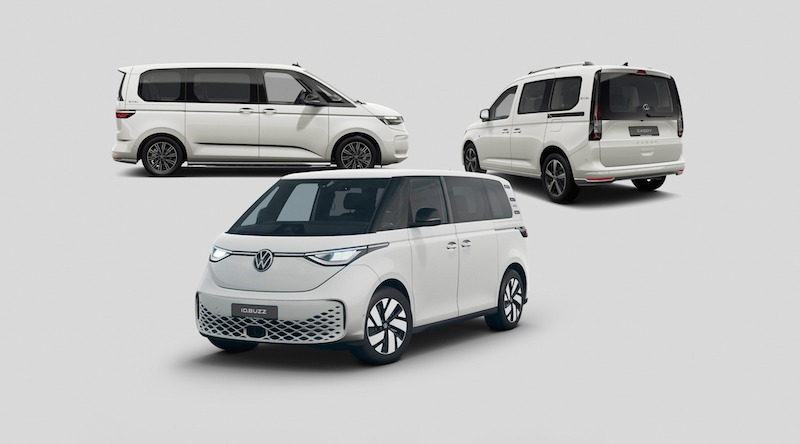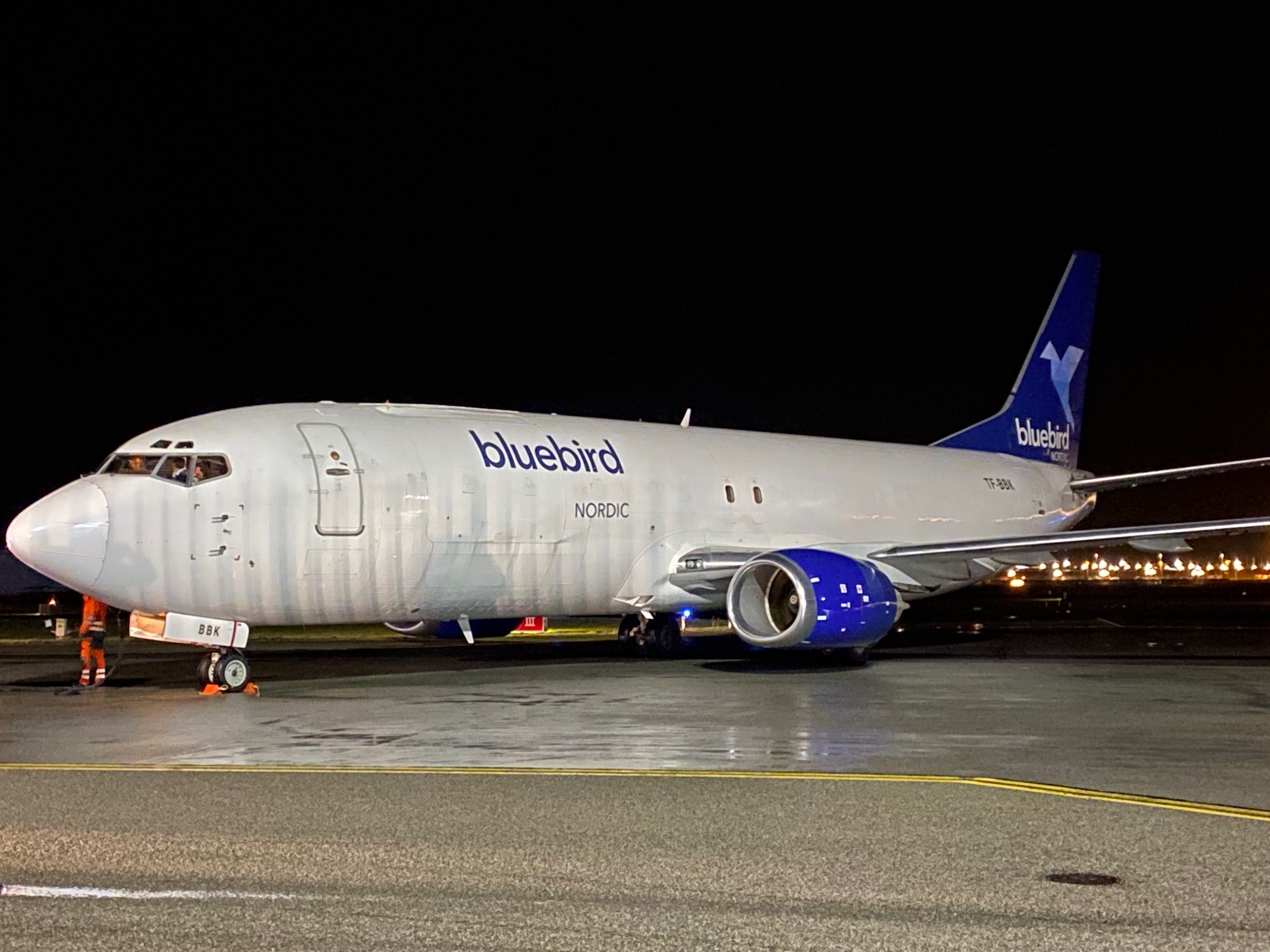Following the successful electrification of vans and city buses, MAN Truck & Bus is now also launching sales of the new heavy MAN eTruck at the end of October. According to the company’s plans, this should already account for around 50 percent of MAN’s new vehicle registrations in the EU by 2030. But in order for the green drive turnaround in the transport industry to succeed, MAN and the German Freight Transport and Logistics Association (BGL) are jointly calling for the accelerated expansion of public charging infrastructure.
The new MAN eTruck will be available to customers in the first European markets from the end of October. But whether and when they switch from diesel to electric drive depends on the existence of the necessary framework conditions – above all, a nationwide charging infrastructure. MAN and the German Association of Freight Transport and Logistics (Bundesverband Güterverkehr und Logistik) are calling for political support in this regard:
“Around 96 percent of the greenhouse gas emissions of our current diesel vehicles are attributable to the use phase. That’s why battery-electric drives for commercial vehicles are the decisive key to achieving CO2 reduction targets. But for our customers to switch from diesel to battery-electric trucks, a nationwide charging infrastructure is a basic prerequisite. And here we urgently need a significantly accelerated expansion to at least 4,000 megawatt charging points in Germany and 50,000 high-capacity and megawatt charging points in Europe by 2030. We have done our homework, our e-truck is starting soon to go on sale. Now we urgently need the support of policymakers and the commitment of the energy industry in order to jointly make a success of the traffic turnaround in road freight transport,” says Dr. Frederik Zohm, Executive Board Member for Research and Development at MAN Truck & Bus SE.
BGL Board Spokesman Prof. Dr. Dirk Engelhardt adds: “The climate targets in road freight transport can only be achieved if the framework conditions and operating economics are right. In addition to the availability of vehicles with alternative drive systems, these include the widespread availability of charging and, above all, power grid infrastructure, as well as planning and investment security for funding programs for the switch to electromobility.

Stress test in the ice and heat
To ensure that the MAN eTruck is in no way inferior to today’s diesel trucks in terms of performance, reliability, and efficiency, it has already undergone extensive durability, load, and safety validations on its way to series production readiness. This also includes many hundreds of thousands of kilometers of road tests, including in the icy cold of the Swedish winter at minus 40 degrees and most recently in the extreme summer heat in southern Spain at plus 40 degrees.
Conditions that place extreme demands on the temperature management of the batteries, the charging management, but also the powertrain components. In Spain, 40 development experts have now spent ten weeks testing the new MAN eTruck – over 10,000 kilometers, in sometimes extreme topography with numerous inclines and declines, by day and night, in order to meet the demanding and at the same time very different requirements depending on the transport task.
Training of the sales team
In order to be able to provide customers with expert advice on the purchase of an electric truck and answer all related questions on charging infrastructure, suitability for use, and suitable vehicle configuration, MAN is currently preparing its 1,200 European sales staff for the upcoming market launch of the new eTruck. Thanks to its preparation for the future megawatt charging standard, this truck achieves daily ranges of between 600 and 800 kilometers suitable for long-distance transport and thus also easily covers the majority of other typical transport tasks of today’s trucks – such as low-noise and emission-free waste disposal in the city or the collection of milk from organic farmers with an electric food tanker.










